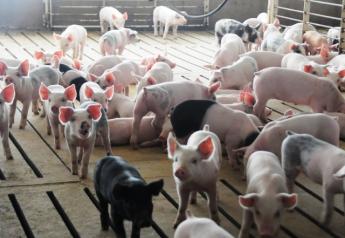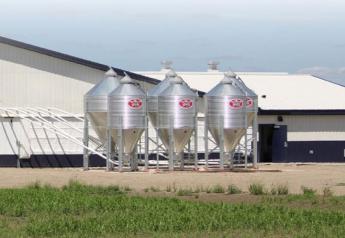U.S. Cattle Slaughter Drops 27,000 Head as JBS Cyberattack Cripples Largest Beef Processor
JBS USA Cyberattck 060221
A cyberattack on the world’s largest meat processor crippled beef and pork processing capacity early this week. JBS USA confirmed the attack affected servers at its IT systems in North America and Australia.The White House said on Tuesday that Brazil's JBS SA informed the U.S. government that the ransomware attack against the company originated from a criminal organization likely based in Russia.
USDA’s daily cattle slaughter estimates revealed 94,000 head of cattle were processed on Tuesday, a drop of 27,000 head from the same time last week.
Bloomberg reported Tuesday JBS’s five largest beef plants in the U.S. halted processing, which accounts for 22,500 head of cattle per day. The reports showed processing plants were closed in Nebraska, Texas, Utah and Wisconsin. In addition to plant closures, others were running at reduced capacity. Early Tuesday labor union representatives in the U.S. said shifts were canceled at a number of plants.
In the U.S., JBS accounts for about 23% of total slaughter capacity. News of the cyberattack hit before commodity markets opened, but the news sent livestock futures lower.
“The live cattle market was down early on Tuesday, but I don't know if we could assign all that to the JBS announcement,” says Glynn Tonsor, livestock economist with Kansas State University. “It was a long weekend, corn market was up over the weekend as well. There's a lot of different things there. But all else equal, the cattle market is concerned.”
The Longer It Lasts, the Larger Impact It Will Have
Tonsor says while the hope is the issue will be resolved quickly, the duration of the plant closures and reductions are a key factor, especially as cattle processing capacity works to get back up to full throttle.
“We've had labor challenges for months now. Now you have an IT challenge,” says Tonsor. “I don't know how long it's going to last. But anything that keeps certain plants offline will make that particular challenge worse.”
He says the longer his goes on, the bigger weight it will have on slaughter capacity and cattle prices, with the potential to top the August 2019 plant fire in Holcomb, Kansas.
“For context, the August 2019 event, which happened here in Kansas, that was one plant that was directly impacted, and then lots of other plants are indirectly impacted because cattle rerouted” says Tonsor. “Well, here, we're debating how long and how many, in this case, one specific company's plants because it's one IT system. I don't know the duration, but the number of head that can be impacted would be larger than the whole complaint because you have more than one large facility. And it's not just in the US. It's a global phenomenon.”
Global Impact
The global impact is being felt in Australia and Canada. JBS’ operations in Australia were shut down for a second day, and the largest beef plant in Canada was also halted.
“When we have a lot of cattle trying to get into a very occupied sector of the industry, it doesn't take much of a hiccup to create a market impact,” adds Tonsor. “Conversely, if we're at a point, like we were say in 2014, where we actually had more shackle space relative to cattle, then an event like this would not have the same impact on their cattle prices.”
From the Holcomb plant fire, to processing problems during the COVID-19 pandemic, the cyberattack is the latest ‘Black Swan event’ to impact the cattle markets.
“We can't just look at one news event label one a black swan event and move on,” says Tonsor. “It's a function of a lot of other things. Simply adding more plants, which is talked about would ease some of that challenge. But that's not free. And we all need to remember why that hasn't been, you know, done already. They're expensive investments.”
IT Issues the New Normal?
As processing plants rely more on technology to operate, Tonsor says IT issues aren’t just something that could impact protein processing, but the entire food chain. However, Tonsor says the advancements and benefits of today’s technology need to be weighed against the risk of operating without advanced technology.
“What's an IT risk relative to labor excess risk? What's a modern facility driven by IT risk versus an old facility that might be more manual and maybe has a more fire risk with it, because it's an older facility? So, there's a lot of tradeoffs in the broader risk.”
Tonsor says cyberattacks and other IT related issues could continue to throw curve balls into the food chain, but is confident the food system will learn how to manage such events, softening the potential impact attacks like the one on JBS will have in the future.







